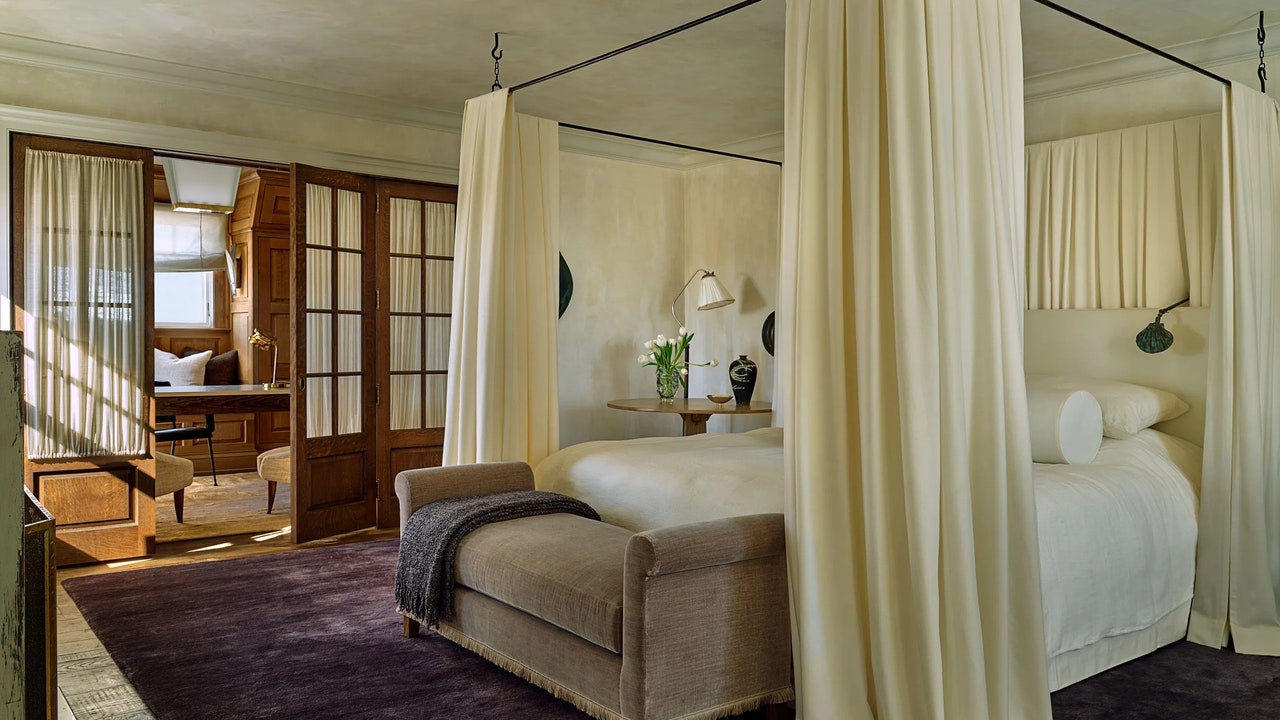Next, we received a photograph of a sconce seamlessly plastered into the corner of a wall, with an aged finish that gave the impression it had been there for centuries. This image further fueled our creative process. We’re constantly inspired by the visions and guidance provided by the designers we collaborate with, and there’s nothing more rewarding than bringing those ideas to life.
Is there a particular style of installation clients are requesting more than others these days?
Our fluted plaster treatment remains a top request—it’s become a signature finish for us. However, we’re seeing a surge in demand for our metal treatment. We hand-trowel metals onto surfaces, transforming everything from fireplaces and walls to furniture into stunning cast metal pieces. It’s an exciting trend that’s really taking off, allowing us to push the boundaries of what plaster and metal can do together.
What are some markers of good (or bad) plaster quality to look out for?
Some telltale signs of poor plaster quality or application are black burnish marks, bubbles, and cracks—these typically indicate the use of low-grade materials or subpar craftsmanship. Another significant indicator is the presence of lap lines, which occur when applicators treat it like joint compound, allowing sections to dry without maintaining a wet edge.
For a plaster newbie, what’s an entry-level feature worth trying?
If you’re attempting plaster for the first time, we recommend starting with a “feature wall,” such as the headboard in a bedroom. Choose something that’s easily accessible with a six-foot ladder and no more than 10 feet long. Smaller inset walls are an excellent starting point, as they’re more manageable, while outside corners and multifaceted elements like fireplaces can be tricky for beginners.
If you aren’t sworn to secrecy, any cool projects you have underway that you can tease?
We’re no strangers to NDAs, but without revealing too much, we can say that we’re putting the finishing touches on an incredible new development in Beverly Hills. We’ve plastered every inch of this home including a breathtaking three-tier spiral staircase with our metal finish. The project also features an all-metal kitchen, a striking metal feature fireplace, and a fully plastered spa on the lower level. It’s like something straight out of a 3D render fantasy.
Your mantra is “plaster over everything.” Is there anywhere that plaster shouldn’t go in a house?
“Plaster over everything” isn’t just our mantra—it’s our guiding principle. Plaster’s natural antifungal, antimicrobial, and water-resistant qualities make it an ideal choice for virtually any part of the home, no matter the climate or region. Its durability and versatility truly shine in a variety of settings, but if we had to advise against using plaster in one area, it would be kitchen countertops. They are too often exposed to harsh cleaning chemicals that can compromise the plaster’s surface over time.
This interview has been edited and condensed for brevity and clarity.


